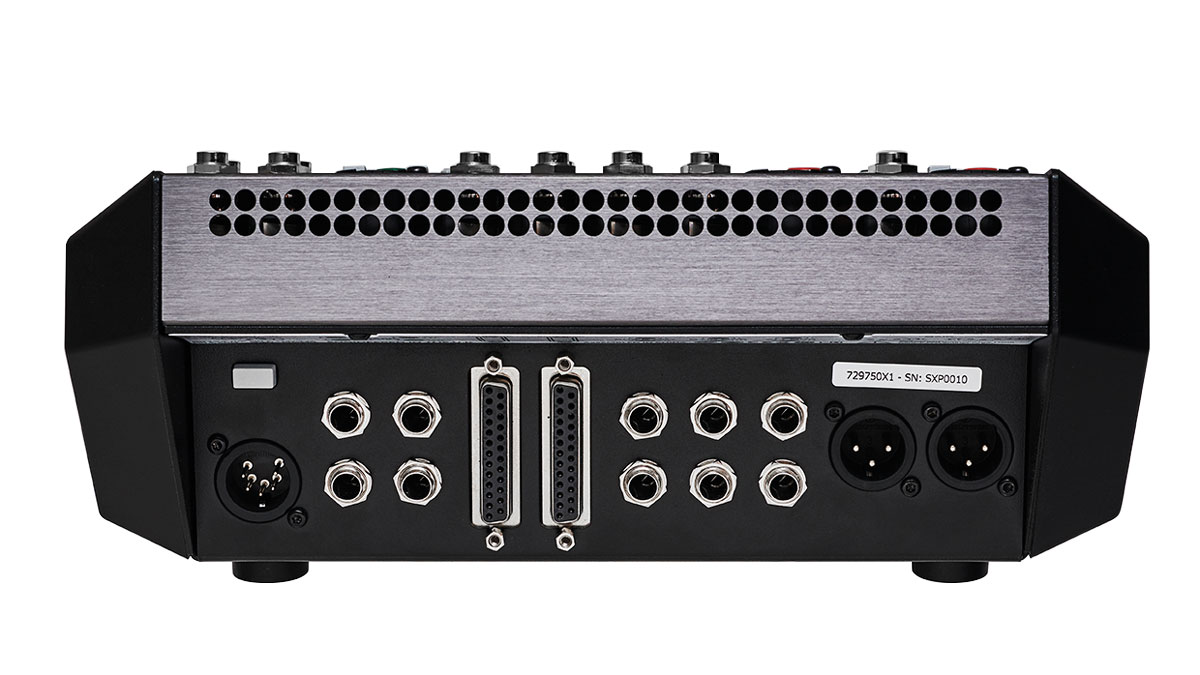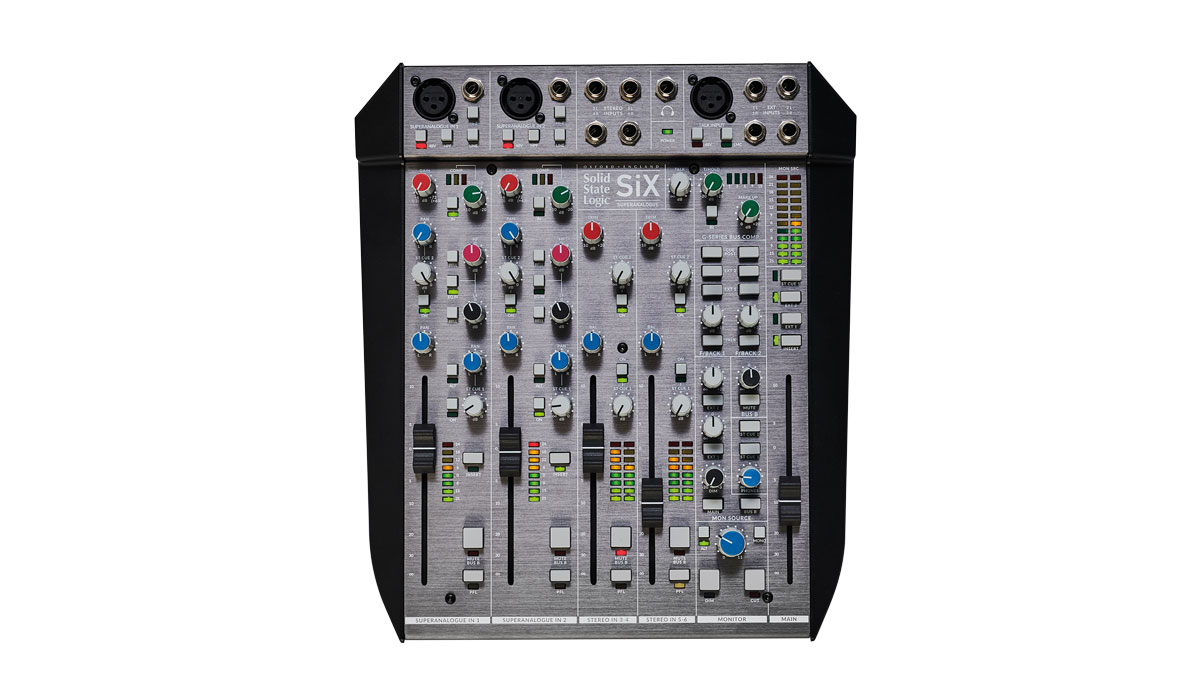MusicRadar Verdict
A flexible, compact all- analogue mixer with premium electronics, classic SSL processing and just enough to justify that price.
Pros
- +
SuperAnalogue signal path with switchable options for pristine signal fidelity.
- +
Good selection of monitoring options.
Cons
- -
Integrated audio interfacing would be nice.
- -
No integrated talkback mic.
MusicRadar's got your back
Despite having a history rooted in large format music and broadcast gear, SSL’s X-Desk showed that it could appeal to the little guy too.
Its latest unit, simply called ‘SiX’, is its most affordable and compact desk to date. Incorporating SSL’s highly respected SuperAnalogue circuitry, SiX is a totally analogue mixer with a feature set aimed at desktop producers, podcasters, small scale post production and live use. SiX has a pretty unique feature set for a compact mixer.
It’s a six-channel design using four 100mm faders with a fifth fader for the main output. There are two mono channels with mic/line/ instrument options and a pair of stereo channels with line-level inputs. The mono channels (1 and 2) include a high pass filter, gain, simplified E Series style two-band EQ, a newly-designed (though E Series inspired) program-dependent compressor, two stereo cue sends and insert point. The simpler stereo channels (3,4 and 5,6) meanwhile get line trim and the two stereo cue sends. All channels have pre fade listen (PFL) and mute buttons, and the latter simultaneously route the signal to a second stereo bus B.
The remaining panel space is occupied by switching and levels for monitor controls, monitor source, external sources (two stereo inputs), headphones, foldback (two stereo outputs) and master output. There’s a dedicated talkback mic input with phantom power, gain and a switchable listen mic compressor. Connectivity is split between the top panel (mic, line and external inputs and headphones) and back (primarily outputs), and two 25-pin D-Type connectors handle channel and main bus inserts (all balanced).

The SiX’s processing is basic but well conceived. The EQ delivers gentle sweetening in the shelving setting, with the bell option (at 200Hz and 5kHz) better suited to adjusting mic proximity and presence on a vocal. The one knob channel compressor we found surprisingly snappy and with auto gain make up very easy to use. The mix bus compressor has fixed settings that are ideal for delivering that all important mix glue.
SiX includes both onboard headphones and two foldbacks designed for sending to external headphone amps. With the right cable you could easily plug phones directly into the foldback outputs as there’s plenty of adjustable gain available at the foldback controls. Other flexibility comes in the form of the main bus where you can add in the aforementioned external sources. Including the channel strips, SiX can blend 12 channels to the mix bus making it a decent summing device.
As desks go it feels quite busy, but every button and meter serves a purpose or even two, and being able to switch features in and out will appeal to audiophiles. In use, the SiX is super quiet with oodles of headroom and bandwidth to match, and like all the best analogue gear also gets a bit toasty when on a while.
Part of us would love to see a 2 in/2 out interface here, and an integrated talkback mic and phase invert on mic inputs. This aside, though, this is a truly awesome little desk that ticks so many boxes for all manner of users.
Jon is a London based platinum award winning mixer, producer, composer and club remixer with a diverse CV that spans dance, pop, rock and music for media. He’s also a long term contributor to MusicRadar's music technology tutorials and reviews. Whether working alone or collaborating he usually handles final mixdowns, so you’ll also find MusicRadar peppered with his handy mixing tips.
"I said, “What’s that?” and they said, “It’s what Quincy Jones and Bruce Swedien use on all the Michael Jackson records": Steve Levine reminisces on 50 years in the industry and where it’s heading next
“Excels at unique modulated timbres, atonal drones and microtonal sequences that reinvent themselves each time you dare to touch the synth”: Soma Laboratories Lyra-4 review
“I used everything I knew about music”: How Green Day exceeded expectations with their most ambitious song











